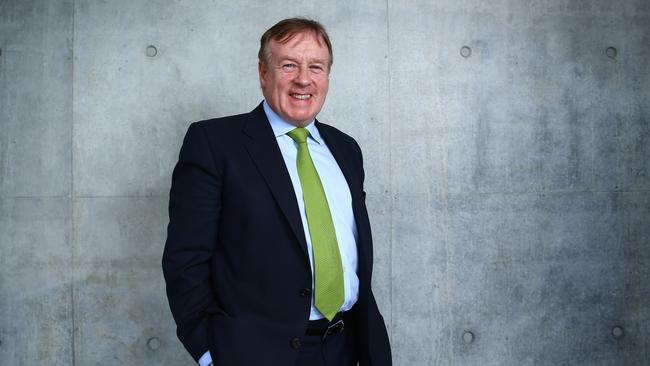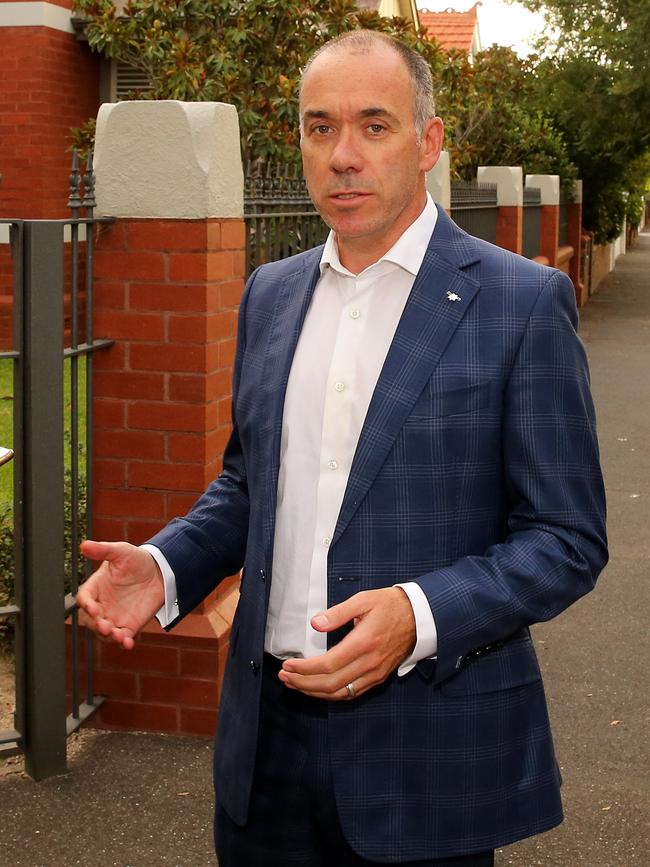Ex-NAB exec Joseph Healy hits out on pay in ‘Breaking the Banks’
A former big-four bank executive makes a blistering attack on the industry for ‘elitism and rent extraction’.

Senior banker Joseph Healy has launched a scathing attack on the industry’s pay structure, saying bonuses reflect “elitism and rent extraction on a grand scale”.
In his book Breaking the Banks, to be released on Monday with an extract published by The Weekend Australian, Mr Healy says the core idea behind a bonus is to align total executive pay with sustainable shareholder outcomes and expectations.
However, any alignment between the total shareholder return of the four major banks in 2017-18 and bonuses “is not evident”.
“These payments have nothing to do with true capitalism; it is elitism and rent extraction on a grand scale,” the former head of National Australia Bank’s business bank says.
READ MORE: Paying banks too much | Executive pay crackdown
“There is no correlation, in fact it became a hedge for executives as the value of their equity fell; the bonus payments provided some compensation.”
Mr Healy ran NAB’s business bank for six years until 2014, when Andrew Thorburn was appointed chief executive and revamped his senior management team.
He then co-founded the challenger SME lender Judo Bank, which recently completed a $400m, second-round capital raising ahead of a possible initial public offering in the next 12-18 months.
In his book, Mr Healy addresses the inevitable cry of hypocrisy, listing six reasons why he chose to stay at NAB for as long as he did, including an admission that money can “temper a sense of frustration and disillusionment for a while”.

His attack on executive pay comes as NAB, ANZ and Westpac face the prospect of second strikes on their remuneration reports and possible board spills at their annual meetings in December.
NAB attracted a record 88 per cent no vote against its remuneration report in 2018, with shareholder anger fuelled by executives still receiving bonuses despite the bank’s poor showing in the Hayne royal commission.

“At NAB, bonuses were paid when shareholders had seen value lost, brands trashed and embarrassing allegations of serious errors of judgment,” Mr Healy says. “These errors of judgment included the case of the CEO (Mr Thorburn) making the news because he accepted gifts such as a Thermomix and a heavily subsidised holiday in Fiji, and then his trusted assistant allegedly helped herself to millions of dollars of the bank’s funds, with no internal checks and balances apparent.
“These outcomes reinforce a sense that it is not shareholders who are prioritised over customers, but it is banker remuneration that has a priori preference over all else.”
Shareholders, he says, wonder how any self-respecting executive or any sensible and responsible board can allow “what can only be described as farcical outcomes”.



To join the conversation, please log in. Don't have an account? Register
Join the conversation, you are commenting as Logout